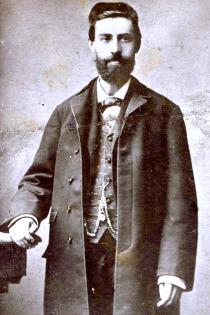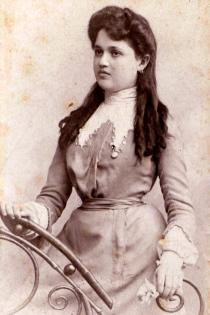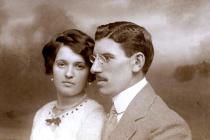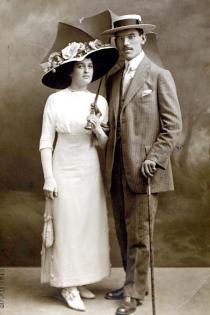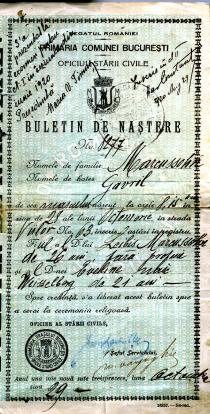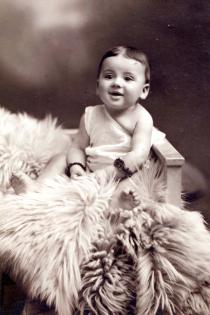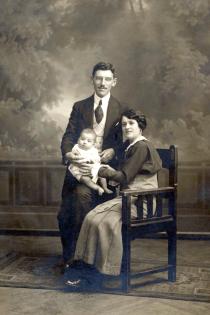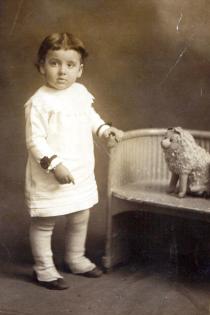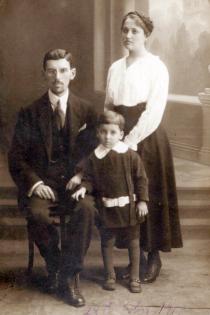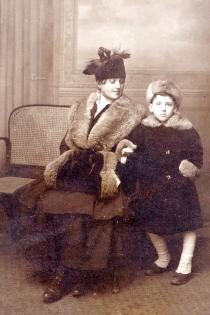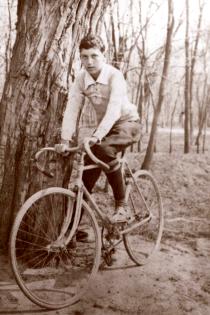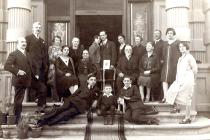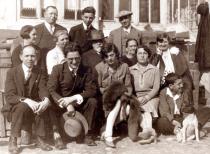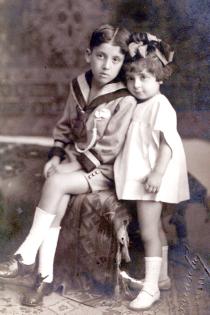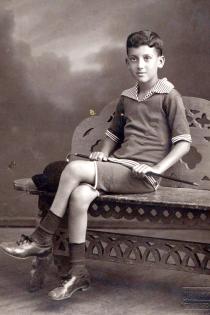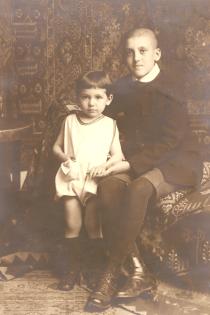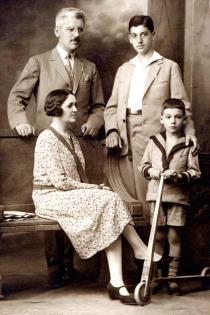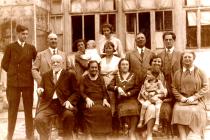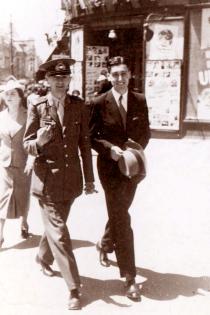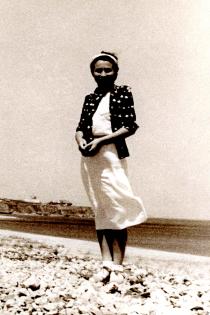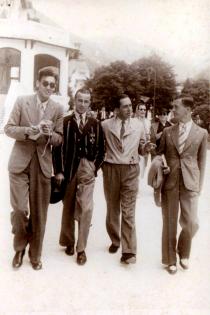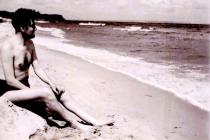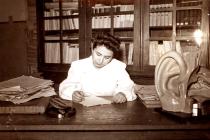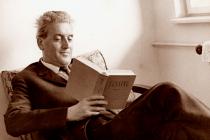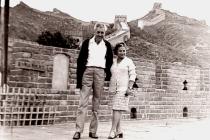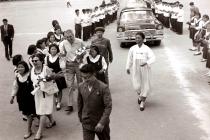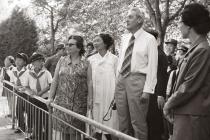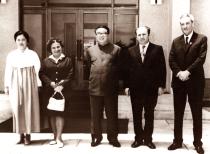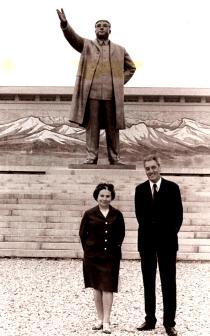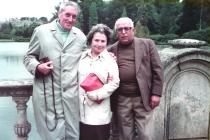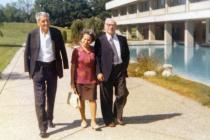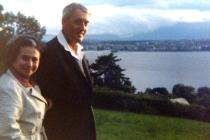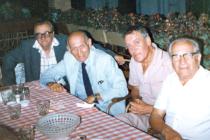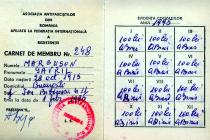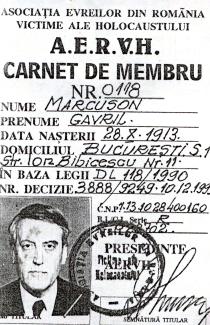This is my wife-to-be, Cornelia Paunescu. The photo was taken in 1938, in Agigea.
My wife, Cornelia Paunescu, was born in 1911, in Bucharest. She wasn't Jewish. She had two sisters: the late Blanche Nicolau [nee Paunescu], and Agatha Paunescu, who's still alive and is a retiree. They spent all their lives in Bucharest. We got married in Bucharest, in 1957. There was only an official ceremony at the 3rd District Town hall - neither her, nor I was religious. Both my family and hers agreed to this marriage. I wasn't a child anymore, I was confident I could choose what was right for me, and it turned out I made the best choice. Cornelia went to the Medical School in Bucharest. She was a scientist and she lectured at over thirty international conventions. She was the only Romanian docent with a PhD in pediatric otolaryngology - that was her specialty.
She was the daughter of some veteran social democratic militants. I wanted to talk to her parents, to ask them about their memories of the old, pre-World War I social democratic movement, the way I'm telling you things from my past right now. Her parents were well-known people; both her mother and her father had their picture in Atanasiu's 'Istoria socialismului' ['History of Socialism']. Her father, Paunescu-Paltin, was already dead. There's a street in Bucharest named after him - a small, pretty street, in the neighborhood where we used to live. They almost gave this name to the very street we lived on, but, eventually, another street, parallel to ours, got to be called Paunescu-Paltin. Her mother was a militant of the socialist women's group. I went to talk to her, and it was on that occasion that I met her daughter. She told me, in her turn, some of her memories of the social democratic movement. It was 'love at first sight'. And we got married. We were both middle-aged by then, in our forties.
She was very gentle and kind and she only had one flaw: she trusted people too much. She didn't know what evil meant. She fluently spoke French, English and Italian. She had a nice humanistic culture We both retired in the same day, in 1973. We spent our spare time reading, going for a walk, going to see performances. I didn't keep any Jewish traditions. One morning [in 2000], we had had lunch in the kitchen, 'closer to the production site', like we used to say. She was breathing rather difficultly, but I didn't get nervous. I took her by the hand and helped her sit in an armchair, so she could carry on reading her novel. She fell. I thought she had stumbled against the carpet. But she was dead. I never knew one could die so easily.

